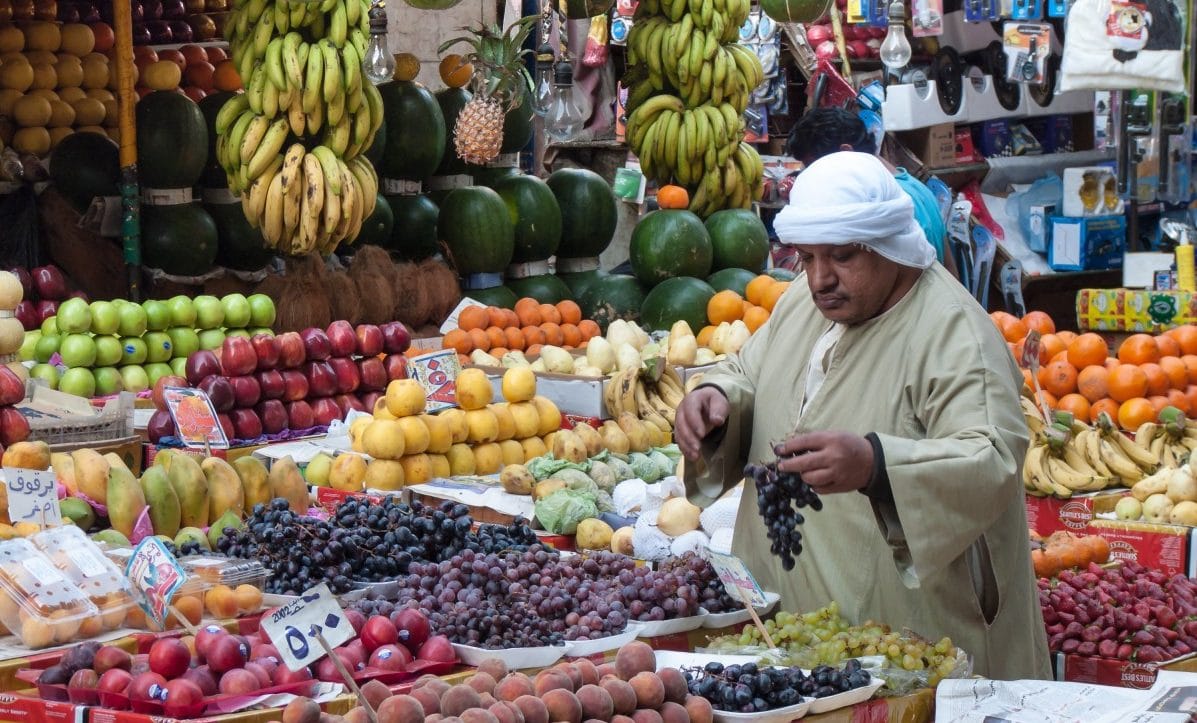Egypt’s food industry opts as a main pillar in the country’s economic performance, with agriculture representing roughly 11.5% of the growth domestic product (GDP), according to market insights published by Food Africa Expo.
Agricultural exports increased by 13% between September 2017 and April 2018 to reach around 3 million tons. However, restricted water supply and arable lands resulted in lower production, which makes the country dependent on imported food, according to Food Africa Expo.
Business Forward looks into what the food production industry looks like and how the country’s economic reform program affected the sector.
What does the market look like?
Despite the country’s LE217 billion sustainable development plan for agricultural lands, food production in Egypt does not meet local demand amid the growing population.
Over 7,000 local food processing and manufacturing companies generated sales worth $22.2 billion in 2018, with retail food sales expected to reach $98 billion by 2020, according to a report released by the Global Agriculture Information Network (GAIN).
Domestic food production is mainly dominated by family-owned businesses such as Edita, Juhayna and Arabian Food Industries.
The overall effects of inflation and devaluation on consumers
In 2016, the Egyptian government kicked off its economic reform program, starting with the floatation and devaluation of the Egyptian pound and the reduction of subsidies. Accordingly, annual food inflation rates skyrocketed from 14% in January 2016 to 40% in 2017.
Consequently, Egyptians spent 45% of their income on food by the end of 2016 compared with 40% in 2012, according to data by the Central Agency for Public Mobilization and Statistics (CAPMAS). Notably, food consumption doubled and sometimes tripled during the month of Ramadan each year.
Consumer prices went up by 60% between 2016 and 2017, according to member of the Food Industries Chamber at the Federation of Egyptian Industries Ashraf al Gazayerli.
How were businesses in the sector affected?
Economics professor at Alexandria University Zeinab Awad-Allah previously told the American Chamber of Commerce (AmCham) that the industry would not have been negatively impacted had the sector not been heavily subsidized.
Due to the reforms, production costs increased, thus raising prices. Companies are tackling this issue by lowering their break-even point through increasing profit margins to compensate for shrinking sales volumes, according to chairman of Faragallah Food Industries Mohamed Amer, as quoted by AmCham.
Other challenges facing the food industry
Other challenges in the industry include the sector’s non-compliance with Good Agricultural Practices (GAP), lack of a food safety system, shortage of irrigation water, reclaimed land allocation and pricing issues and a lack of investments targeted to research and development, according to a report released by the Federation of Egyptian Industries (FEI).
The FEI adds that a lack of monitoring and regulation of agricultural activities, weak supply chains and ineffective farming methods contribute to an estimated 30%-loss in agriculture production.
Some of the proposed solutions by the federation include linking agricultural policies to industrial and export policies, reviewing customs duties on raw materials, increasing funding for agricultural research and establishing logistics centers nationwide to improve supply chains. Furthermore, the inspection of animal-based products, accreditation of farms through a new system to export and sell products to the local market and facilitation of import procedures should be considered in order to enhance the industry.
Amid the challenges fronting the food sector in Egypt, world food prices have been increasing for the fifth consecutive month, the United Nations’ (UN) Food and Agriculture Organization (FAO) reported earlier this month. The food price index averaged 172.4 points in May, up from 170.3 points in April – its highest level since 2018.
Despite global rising food prices, Egypt still owns promising potential on the agriculture front, according to Food Africa. Market size is expected to average $11.3 million by 2023, growing 3.6% between 2014 and 2023.









